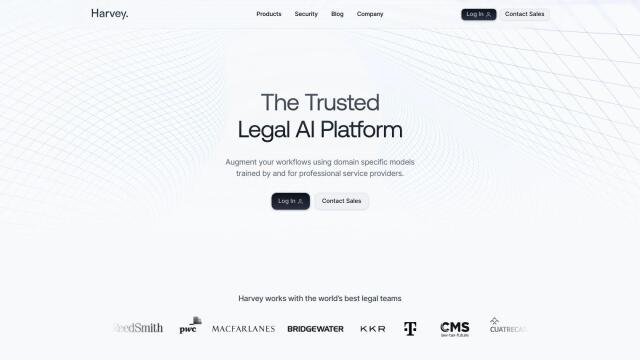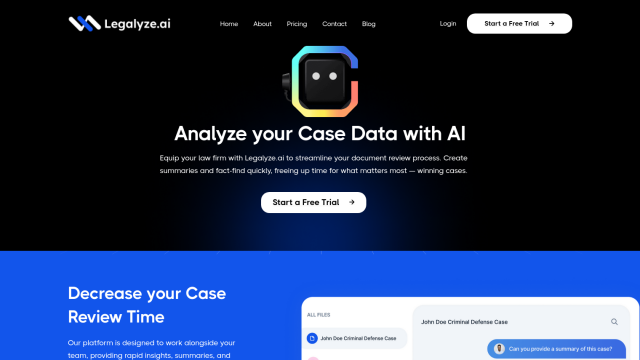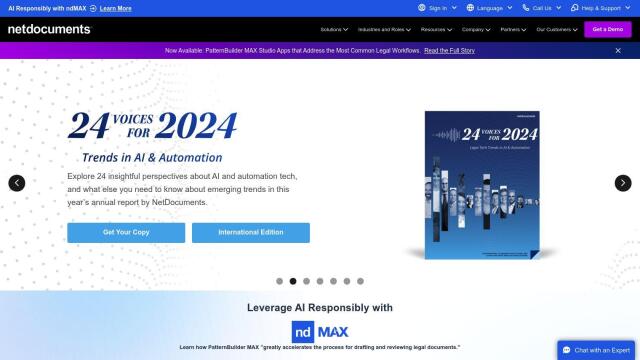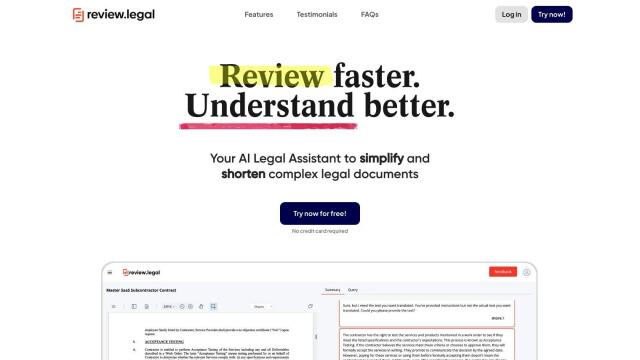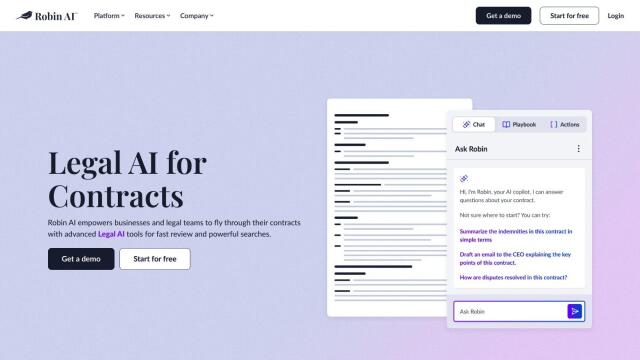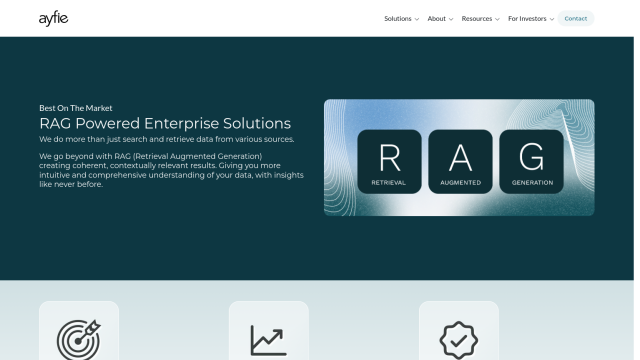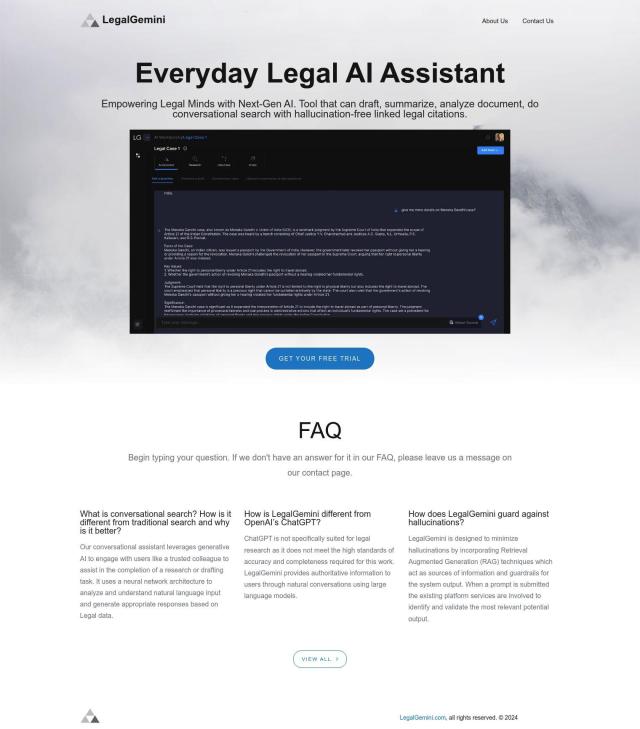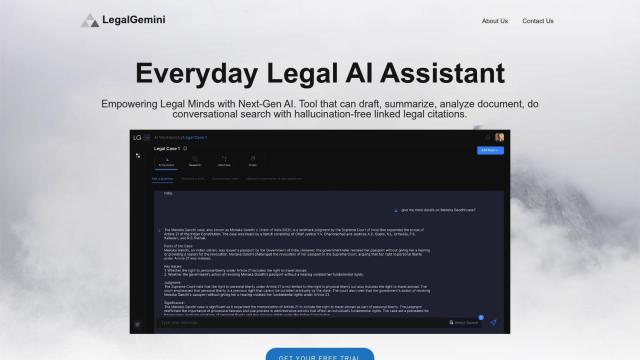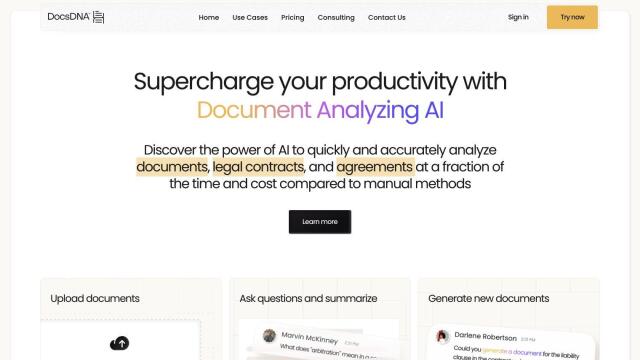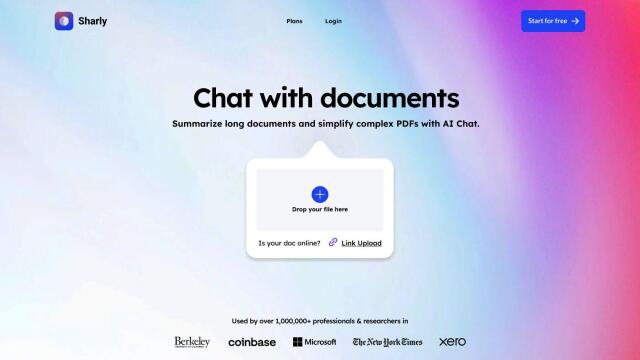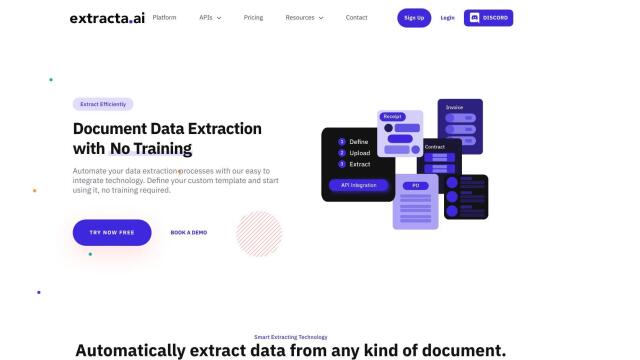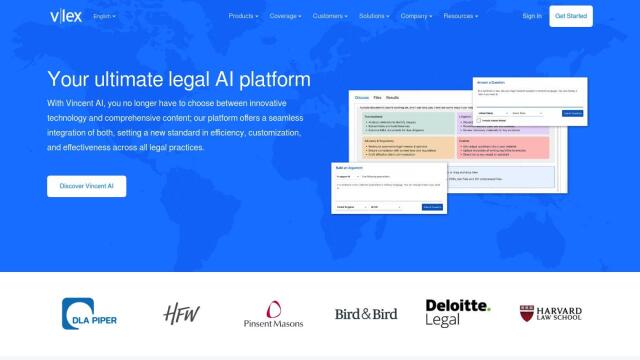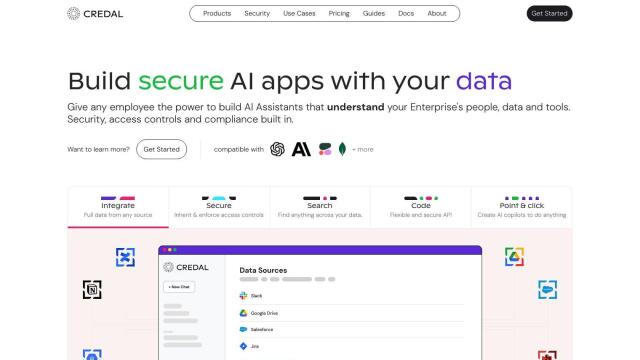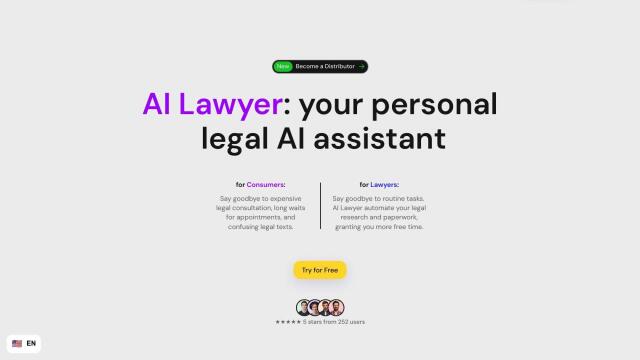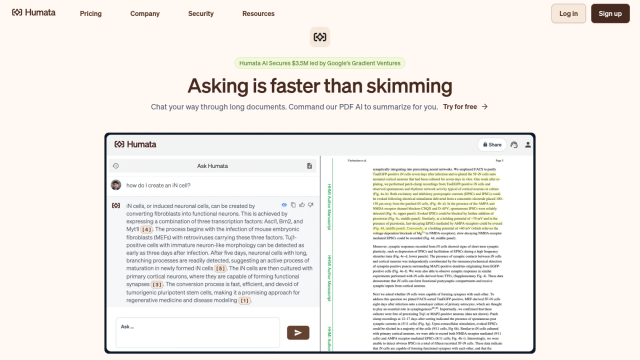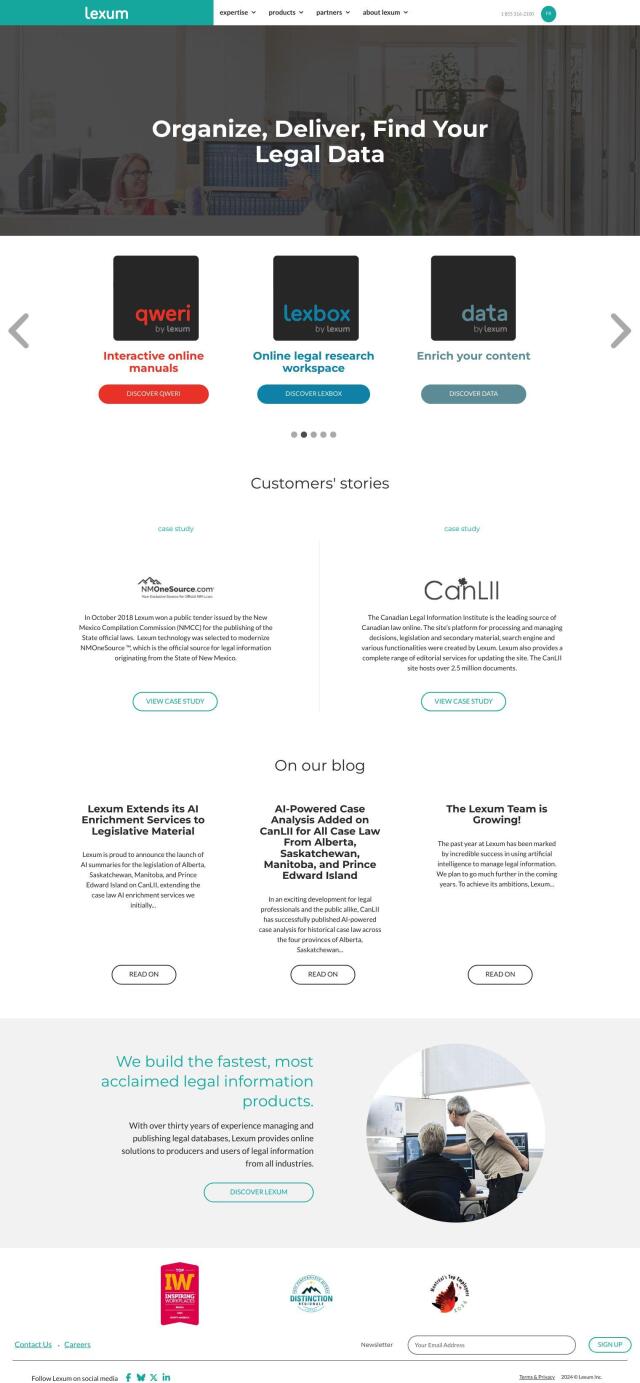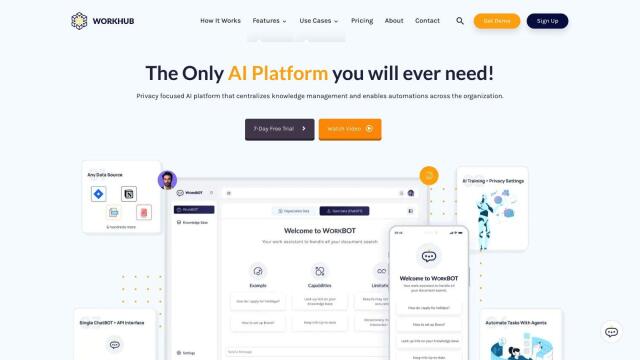Question: Do you know of a system that can securely handle and analyze large volumes of legal records, while maintaining data privacy and security?
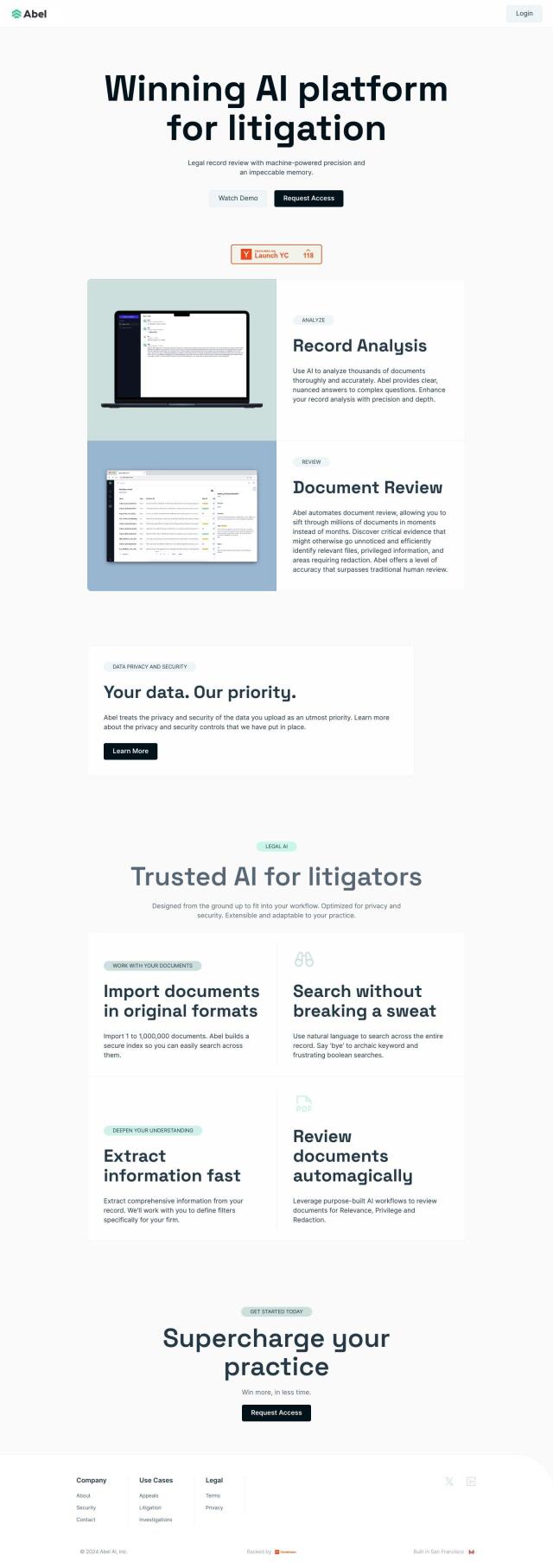
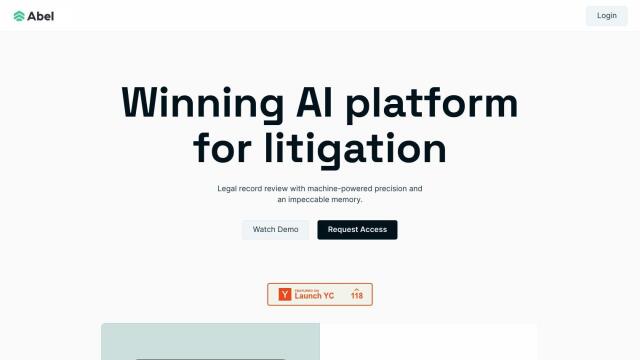
Abel
When it comes to processing and analyzing vast quantities of legal documents, Abel is a top contender. This machine-powered information retrieval system for litigation is geared for lawyers and law firms, with features like record analysis, automated document review and strong privacy and security controls. It can analyze documents in depth, import documents in their native format, and maintain a high level of accuracy and precision. Abel's AI workflows automate document review, making it a useful tool for a wide range of legal cases.

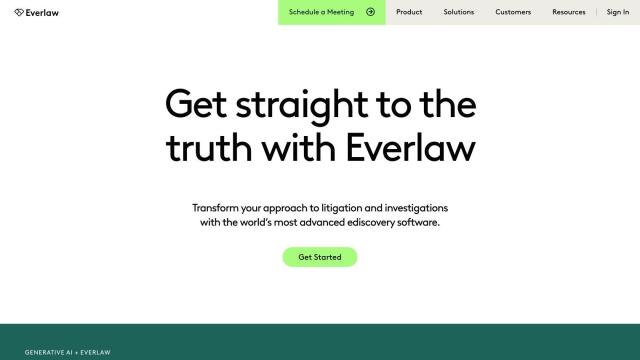
Everlaw
Another option is Everlaw. This cloud-native ediscovery platform offers advanced analytics and machine learning tools to quickly extract insights from complex data sets. It offers features like early case assessment, fast document upload and review with AI, foreign language translation, and audio/video transcriptions. Everlaw's strong security and compliance measures, including SOC 2 Type 2 certification and FedRAMP Moderate Authorization, protect data privacy and security.
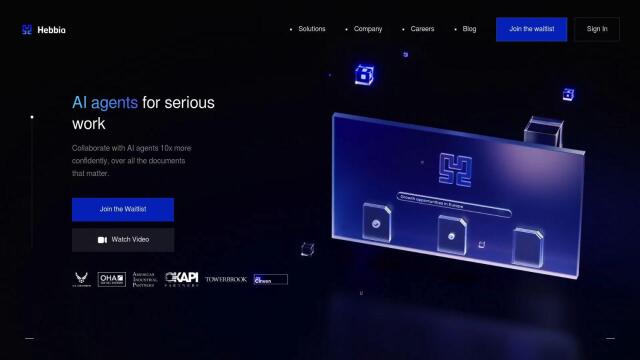
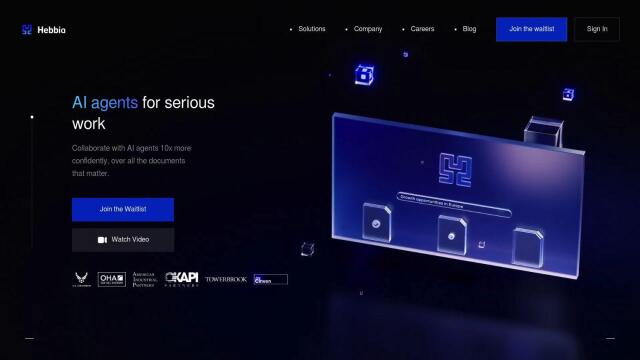
Hebbia
Hebbia is another strong contender, particularly for large enterprises and law firms. Its Large Language Model (LLM) can process large amounts of data and perform multi-file processing, with end-to-end encryption and automated workflows. The platform is useful for financial due diligence, market research and knowledge management, helping to extract, structure and analyze unstructured files quickly.

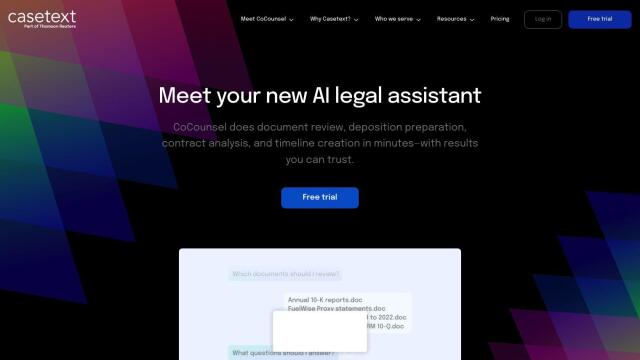
CoCounsel
For law firms looking for an AI legal assistant, CoCounsel automates a lot of legal work, including document review, deposition preparation and contract analysis. It uses OpenAI's GPT-4 technology, but it's trained by a team of lawyers and AI experts to ensure results are accurate and secure. It can free lawyers to focus on higher-level work by processing data and reviewing contracts faster.

